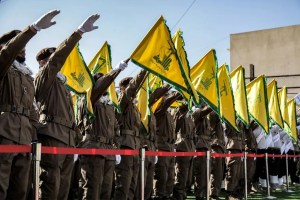Israel has called in more than 300,000 reservists in the seventeen days since Hamas’s monstrous attack on October 7. Many have volunteered for service despite not being called upon. Planes full of Israeli men and women have arrived to Israel from all corners of the earth, carrying those who want to fight in the war. Israel now has more than 500,000 troops ready to be mobilized, and motivation among troops is sky high.
However, a ground offensive into Gaza is currently on hold, despite some limited raids. The IDF’s spokesperson, Admiral Daniel Hagari, has repeatedly declared that forces are ready and will carry out any mission the government will require it to do. The IDF says it is prepared, but the government seems indecisive. Netanyahu, who has never been keen about ground operations in Gaza, is now being called a “coward” by members of his own government.
Netanyahu — always the politician — is considering the popularity of the war
There are good reasons for the delay. A ground offensive, even after the aerial bombing, will be extremely dangerous. The extensive labyrinth of tunnels built deep under Gaza and reinforced by concrete can only be partially damaged from the air. In them will be Hamas terrorists who are much more familiar with the structure of the tunnels than Israeli soldiers, and who are well prepared for a confrontation with the IDF. They could prove to be a death trap.
Netanyahu is also worried that a full-throttle ground invasion of Gaza could leave Israel’s northern border with Lebanon vulnerable. Since October 7, Hezbollah has been attacking Israel with rockets and UAVs and has so far killed eight Israelis. Both sides of the border are on a war footing: forces are ready, more than 200,000 Israeli civilians have been evacuated from towns near Lebanon and the Americans have sent reinforcements. Although American troops are not there to fight, they provide significant support and defenses, as seen last week when an American navy warship intercepted cruise missiles and drones from Yemen that appear to be headed towards Israel. Hezbollah has also amassed a substantial cache of weapons since its last war with Israel.
The Americans have advised Israel to delay a ground invasion of Gaza to give more time to try and free captive civilians. The recent release of two American civilians by Hamas has given hope that negotiations can be successful. This is exactly what Hamas wanted: a show of good will that may delay a ground operation. Hamas thinks it has more time to prepare under such conditions.
Currently, the Israeli public is in favor of a ground operation, and a decisive one. They want this to be the war that ends wars in Gaza. Hamas’s surprise attack, in which entire families were savagely tortured and killed in their homes, means that Israelis will not feel safe until Hamas is crushed.
Netanyahu knows, though, that support for the war may subside if the war is prolonged and casualties mount. Israel’s wars in Lebanon, in 1982 and 2006, both started with high approval rates. As the wars went on and their goals became unclear and seemingly unachievable, and as casualties increased, the public and media turned against it. Netanyahu — always the politician — is considering the popularity of the war, and by extension, his own.
There is distrust between Netanyahu and the top ranks of the IDF. The army and public know that the fighting will be fierce, but are willing to accept the dangers in order to crush Hamas. Netanyahu is more risk averse, but he may have to do as the public demands. Any outcome that allows Hamas to keep existing in Gaza will be considered unacceptable.
This article was originally published on The Spectator’s UK website.


















